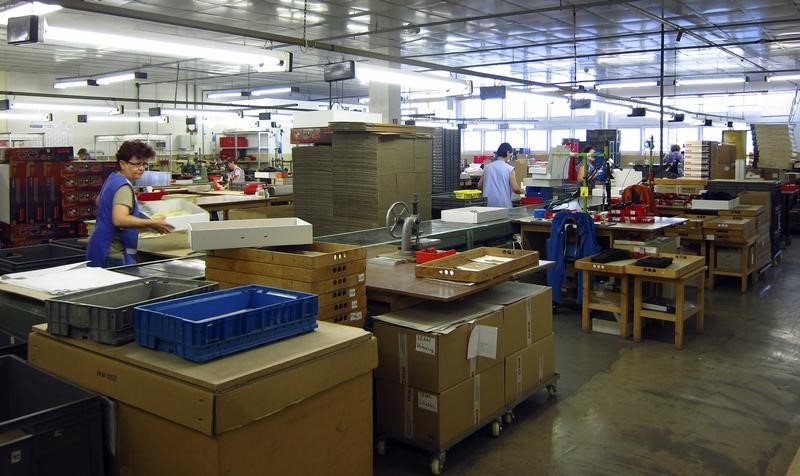By Michelle Martin
BERLIN (Reuters) - German industrial orders unexpectedly dropped in February, partly because companies got fewer major contracts, after bookings already plunged in January, suggesting manufacturers had a subdued start to 2015 in Europe's largest economy.
Orders for goods made in Germany -- a highly volatile indicator -- decreased by 0.9 percent on the month, data from the Economy Ministry showed. A Reuters poll had forecast a 1.5 percent rise.
It was the first time since last summer that orders have slipped for two months running.
"Today's drop in new orders shows that after a series of almost euphoric news and indicators from Germany and euro zone, some caution is clearly justified," said Carsten Brzeski, senior economist at ING.
But he said the weak euro should help German industrial firms: "Judging from earlier episodes with similar exchange rate weakness, order books are currently only moderately filled. If past performances are any guide for the future, German exporters can start rubbing their hands."
The decline in new contracts was driven by a drop in demand for capital and intermediate goods. Bookings for consumer goods, which rose by 2.9 percent on strong demand from abroad, were the only bright spot.
A breakdown of the data showed domestic demand was stagnant, while demand from abroad dropped by 1.6 percent.
The Economy Ministry said the basic trend in industry was likely to remain "pointed moderately upwards" though.
Other evidence has painted a rosier picture of the sector, with a purchasing manager's survey last week showing German manufacturing expanded at the fastest pace in almost a year in March as output gained momentum.
Overall, Germany looks set for a decent performance in the first quarter, with business and investor morale improving, unemployment falling and the private sector gaining traction. Consumer sentiment is at a 13 1/2-year high as shoppers benefit from rising wages and cheap oil.

The orders data for January was revised up to a fall of 2.6 percent from an originally reported 3.9 percent plunge.